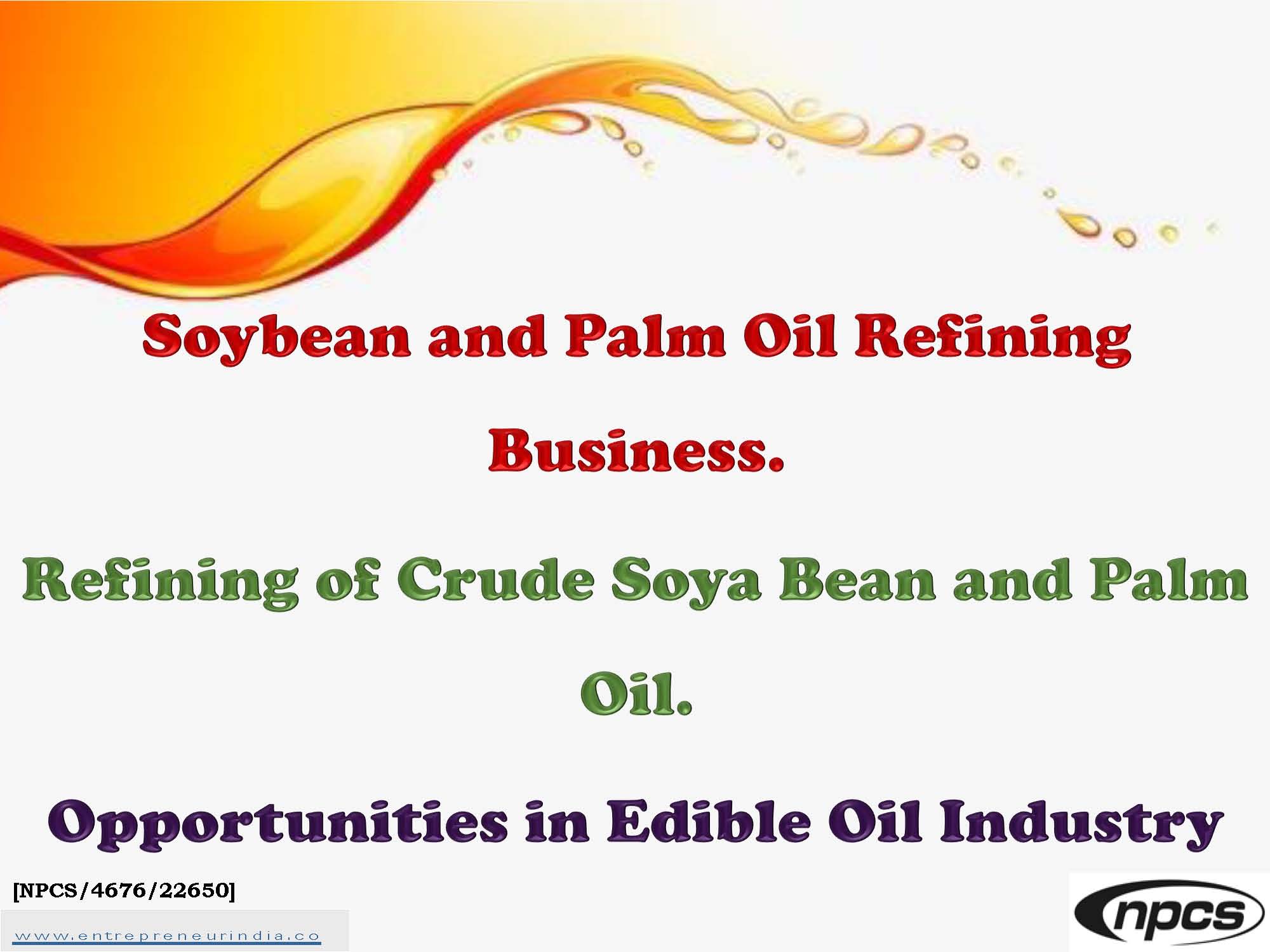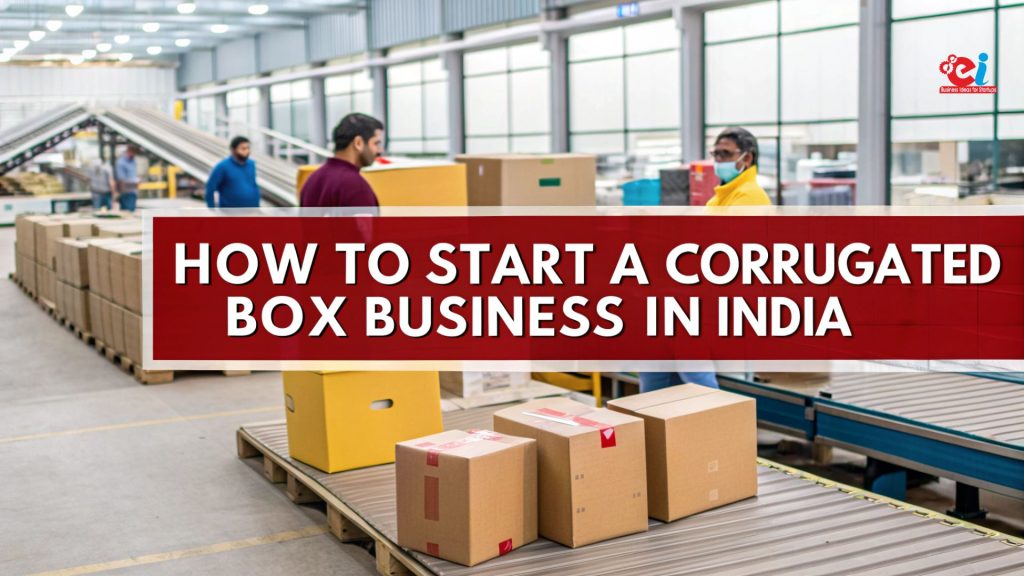
The Soybean and Palm Oil Refining Business is a vital segment of the global edible oil industry. As food consumption patterns evolve and the demand for cooking oils increases in both domestic and commercial kitchens, the need for refined, odor-free, and stable oils is on the rise. Soybean and palm oils are among the most consumed vegetable oils globally, making their refining a profitable and scalable business opportunity. From bulk processing for FMCG giants to private-label retail oil production, the Soybean and Palm Oil Refining Business offers promising growth potential for entrepreneurs, agro-industrial investors, and food processors.
Why Invest in Soybean and Palm Oil Refining?
The growing global population and rising consumption of processed foods have significantly increased the demand for edible oils. In particular, soybean oil is rich in polyunsaturated fats, making it ideal for cooking, frying, and salad dressing. Palm oil, on the other hand, is highly stable and widely used in the production of snacks, bakery items, margarine, and cosmetics.
By entering the Soybean and Palm Oil Refining Business, you tap into an industry that supports massive downstream industries—ranging from food manufacturing to soap production. Moreover, the opportunity to export to countries with oil shortages can open up additional revenue streams.
Key Differences Between Soybean and Palm Oil
Though both are refined using similar principles, they differ in origin and properties:
-
Soybean oil is extracted from soybeans and is high in Omega-3 and Omega-6 fatty acids. It’s commonly used for frying and baking.
-
Palm oil is extracted from the fruit of the oil palm tree and is rich in saturated fats, making it suitable for shelf-stable products and frying at high temperatures.
Both oils must undergo refining to improve color, flavor, shelf life, and remove impurities such as free fatty acids, phospholipids, waxes, and odor-causing compounds.
Raw Materials and Supply Chain
To start a Soybean and Palm Oil Refining Business, the primary inputs required are:
-
Crude Soybean Oil
-
Crude Palm Oil (CPO)
Other auxiliary materials include:
-
Caustic Soda (NaOH) – for neutralizing free fatty acids
-
Phosphoric Acid – for degumming
-
Bleaching Earth or Activated Clay – for color removal
-
Citric Acid – for purification
-
Deodorizing Agents – for smell removal (often steam)
Establishing contracts with crushing plants, refineries, or importers of crude oil is essential to ensure an uninterrupted supply.
Refining Process Breakdown
The refining process in the Soybean and Palm Oil Refining Business follows these major steps:
-
Degumming
Removal of phospholipids using water or acid treatment to reduce sludge and gum. -
Neutralization
Caustic soda is added to neutralize free fatty acids and remove soapstock. -
Washing and Drying
The oil is washed multiple times to eliminate residual soap and chemicals, then dried. -
Bleaching
Bleaching earth or activated clay is added to absorb pigments, color, and residual contaminants. -
Deodorization
Steam distillation is used at high temperatures to remove volatile compounds and odor. -
Winterization (optional for soybean oil)
Removes waxes and saturated fats to prevent cloudiness in cold temperatures. -
Filtration and Packaging
Final oil is filtered, cooled, and stored in tanks before being packaged for retail or wholesale.
The result is a clear, odorless, and long-shelf-life edible oil fit for consumer use or industrial applications.
Machinery and Infrastructure Needed
To operate a Soybean and Palm Oil Refining Business, a standard mid-sized plant requires:
-
Neutralizer and Degumming Vessel
-
Bleacher with Vacuum System
-
Deodorizer Unit (Steam Heater + Vacuum)
-
Heat Exchanger and Cooling Tank
-
Centrifuge Separator
-
Oil Storage Tanks
-
Filter Press or Leaf Filter
-
Packing Machine (for bottles, pouches, or tins)
-
Boiler and Water Treatment Plant
-
Laboratory for quality control
Automation can be customized based on capacity—batch type or continuous processing lines are available.
Plant Setup and Space Requirement
A medium-scale Soybean and Palm Oil Refining Business unit needs approximately:
-
5,000 to 10,000 sq. ft. space
-
Separate zones for raw material handling, refining, packaging, and storage
-
Utility installations: steam boiler, cooling tower, electricity backup
-
Fire safety and ventilation systems
For startups, a 10–20 TPD (tons per day) plant is an ideal entry point.
Licensing and Regulatory Approvals
Before launching operations, ensure compliance with food safety and manufacturing norms:
-
FSSAI License (Food Safety and Standards Authority of India)
-
Factory License
-
MSME/Udyam Registration
-
GST Registration
-
Pollution Control Board NOC
-
Fire Department Clearance
-
ISO 22000 or HACCP Certification (recommended for export)
Proper labeling as per FSSAI guidelines is mandatory, including nutrition facts, ingredients, batch number, and expiration date.
Investment and Profitability
Estimated capital for a medium-scale Soybean and Palm Oil Refining Business:
-
Initial Setup: ?50 lakh – ?2 crore (based on automation level and plant capacity)
-
Operating Costs: Raw materials, labor, utilities, maintenance, logistics
-
Profit Margin: 15% to 30% depending on efficiency, branding, and volume
Break-even is typically achievable within 18–24 months for well-managed units. Export potential adds additional upside, especially with branding and bulk supply contracts.
Market and Sales Opportunities
Refined soybean and palm oils are sold through:
-
Wholesale distribution (traders, food processors)
-
Retail branding under your label (1L, 5L, 15L packs)
-
Institutional sales to hotels, caterers, and restaurants
-
Export channels (Middle East, Africa, Asia)
-
B2B supply to bakery, snacks, soap, and cosmetic manufacturers
Value addition such as fortified oils (vitamin A, D) can cater to niche health markets.
Sustainability and By-Product Utilization
Sustainable practices in the Soybean and Palm Oil Refining Business are increasingly essential. Some options include:
-
Using spent bleaching earth in soap or biofuel production
-
Converting soapstock to acid oil for animal feed
-
Installing effluent treatment plants for wastewater
-
Utilizing biomass boilers to reduce energy costs
-
Sourcing certified sustainable palm oil (RSPO certified)
Eco-friendly practices also open opportunities for CSR branding and green certifications.
Challenges and Solutions
Common challenges in the Soybean and Palm Oil Refining Business:
-
Fluctuating crude oil prices ? Solution: Bulk purchasing contracts
-
Regulatory compliance burden ? Solution: Hire a consultant or FSSAI expert
-
Storage and shelf life issues ? Solution: Use nitrogen flushing and proper sealing
-
Market competition ? Solution: Build brand trust through consistent quality and distribution
-
Seasonal supply gaps ? Solution: Diversify sources, maintain inventory buffer
With planning and strategic marketing, these challenges can be turned into growth drivers.
Conclusion
The Soybean and Palm Oil Refining Business stands as one of the most dependable and scalable ventures in the food processing industry. From bulk manufacturing to private label opportunities, the industry offers immense scope for entrepreneurs looking to enter an essential consumer market. By investing in quality equipment, ensuring compliance, and innovating in packaging or fortification, new entrants can build strong, profitable brands in both local and global markets.
Niir Project Consultancy Services
An ISO 9001:2015 Company
106-E, Kamla Nagar, Opp. Spark Mall,
New Delhi-110007, India.
Email: npcs.ei@gmail.com , info@entrepreneurindia.co
Tel: +91-11-23843955, 23845654, 23845886, 8800733955
Mobile: +91-9811043595
Website: www.entrepreneurindia.co , www.niir.org





